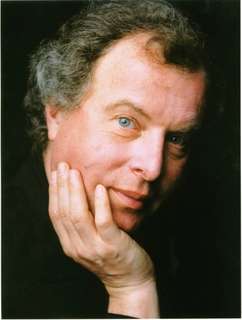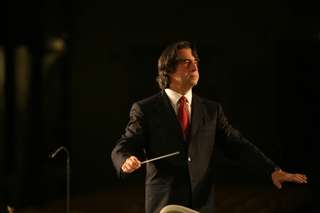|
Back
Atomic Brahms New York
Avery Fisher Hall, Lincoln Center
03/04/2010 - & March 5, 6, 2010
Johannes Brahms: Piano Concerto No 1 in D minor, Op. 15
Paul Hindemith: Symphony in E-flat
András Schiff (piano)
New York Philharmonic Orchestra, Riccardo Muti (Conductor)

A. Schiff (© Sheila Rock)
The great Hungarian pianist András Schiff has been making the rounds these past two weeks, but not in the usual venues. Instead, he has played and given lectures on Franz Josef Haydn at the 92St. Y, attracting audiences which wouldn’t ordinarily care about that composer.
When Mr. Schiff finally appeared in Lincoln Centre last night, he didn’t have to “explain” Johannes Brahms, although both he and Haydn had a long-term relationship with Mr. Schiff’s native land. Haydn unhappily toiled away in a grand palace which was in the most rural hinterlands of Hungary. Brahms, never lived there, but his abiding love of all things Hungarian–from his favorite violinist to his favorite dances–was happier.
Both Mr. Schiff and conductor Riccardo Muti are the most refined artists, so their performance of the Brahms stormy First Piano Concerto was transformed into a painting of a tornado. Mr. Schiff must have been happy to leave last week’s Haydn-minutiae for the larger picture, and his playing was of the refined Central European artist, not the frenetic virtuoso.
Such sensitivity assured that the orchestral introduction was less aggressive than usual, so Mr. Schiff entered with some delicate measures. That opening movement and the final extravaganza. Not for him the hurly-burly or the piano-versus-orchestra. Mr. Schiff and Mr. Muti cooperated in the bookend movements, leaving the Adagio for remembrance.
For this, Mr. Schiff was almost religious, playing the opening like a hymn, returning to the (fairly effete) torments of hell, then back again to the picture of holiness.

R. Muti (© Silvia Lelli)
Nothing was sacrosanct about a rarely-played symphony by a composer rarely performed today. Paul Hindemith set out to be an enfant terrible, his early works jazzy, ironic, sarcastic, and very much part of the Weimar Republic art of Weill and Brecht.
Later, the music became rather academic, with exceptions like the popular Weber Metamorphosis and Mathis der Maler Symphony.
This 1940 E Flat Symphony was written for the Boston Symphony, and is like an all-American work for symphonic band. Trumpets and drums, horns and tubas, lots of timpani solos all make this a most jovial (if ephemeral) piece. Never having heard it before, I expected something drearier, but Mr. Hindemith produced the equivalent of a Prokofiev Classical Symphony, a delicious romp.
Riccardo Muti conducted it with suitable effervescence, and the joy in re-introducing the work to the American audience it deserves.
Harry Rolnick
|